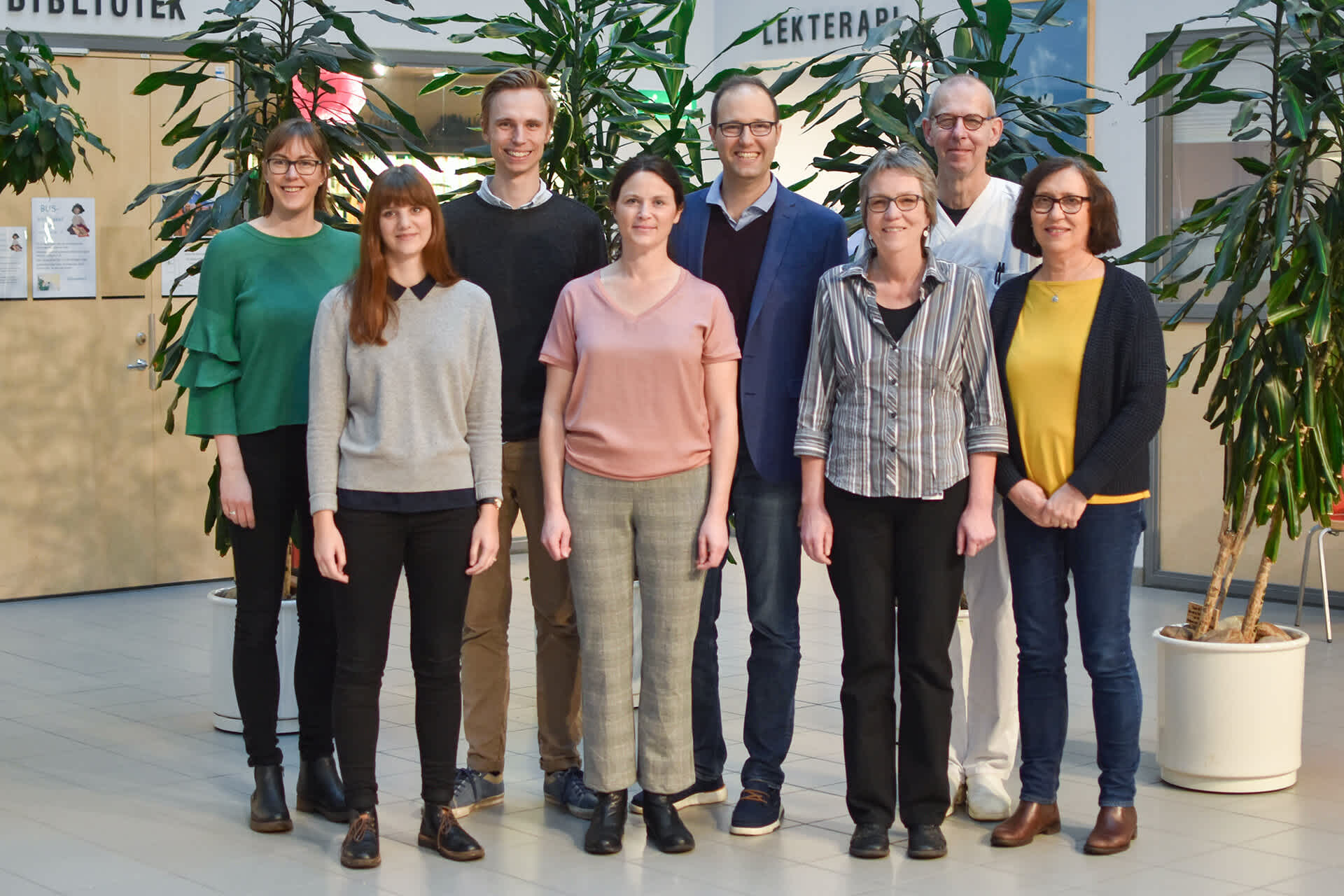“It’s important to see children’s illness”
Robin Kahn is researching Juvenile Idiopathic Arthritis (JIA). He thinks it's time to start seeing JIA in children as a disease of its own, and not as a variant of rheumatism in adults.
Who are you?
My name is Robin Kahn and I am a lecturer in pediatric rheumatology at Lund University. I am a pediatrician and pediatric rheumatologist and work in both clinical and research environments. Right now, I am working with my research group on two tracks in pediatric rheumatology.
What are you working on at the moment?
One of the things we are working on is the long-term prognosis for people with juvenile idiopathic arthritis (JIA), i.e. what people with JIA can expect in the long term.
Among other things, we are looking at co-morbidity with other diseases. Many healthcare and research professionals have their focus on cardiovascular disease and cancer, but patients, on the other hand, often ask us about their future prospects such as: “What will happen? Will I be able to do what other kids do? How will I feel? " These are issues that are not studied as much, and it feels important to explore them.
The second thing we are investigating is how inflammation is activated in children with JIA and how it differs from other rheumatic diseases.
At the lab, we are currently looking at how the immune system is activated. How does inflammation in arthritis work, what drives it and why the white blood cells become activated. We are also looking at a lot of different biomarkers to try to identify which of the children who get sick will have severe chronic illnessess.
Why do you think it is important to research this?
So far, there is not much research done on JIA, because there are not so many child rheumatologists in the world. Often we have had to use data from adults instead of information gathered directly from children and their illness.
I think it is important to investigate the socio-economic aspects of people with JIA, as the disease can affect people's whole lives. It is important to be able to answer patients’ questions in the best possible way. Today, however, we have no good answer about what their disease is likely to look like in the long term. Therefore it is important to find out how people living with JIA are affected in terms of socio-economic factors such as education, income and starting a family. If we find out, we can also work to make their prospects even better.
Another important issue is that virtually all medication for children comes from studies of adults with RA. Admittedly, pediatric studies have been carried out, but they are done using the drugs that have been developed for adults with RA. Is there anything we know, then it is that JIA and RA are not the same disease.
In order to understand how childrens’ needs are different from adults, one must also understand how their inflammatory disease differs from RA in an adult. This is about understanding how the immune system is driven and activated in children. This may mean that you can redesign existing drugs or find new signalling pathways that can be used.
What would you like to do in the future?
I would find it incredibly interesting to learn more about how things are going in the long run for people with JIA. We know that most people reach remission, by our definition, but the next step is that they should feel perfectly well, and that is something we must be able to on work more. It is difficult to research topics like this because it is "softer" data. It is simply more difficult to measure how people feel generally instead of looking at specific symptoms.
The other more laborious project is to really understand the immunology of JIA. Not by finding out how it differs from adults, but from the point of view of how it works in children and why. Children are not just small adults - they have their own diseases that are completely different from adult diseases. It is important to start seeing the children's illness and not just a few people who happened to get it when they were young.
If you have juvenile arthritis when you are an adult, you have the childhood disease - that is, the one you had when you were a child. It is a bit unfortunate that people think you can only have it when you are a child because that’s not the case.

